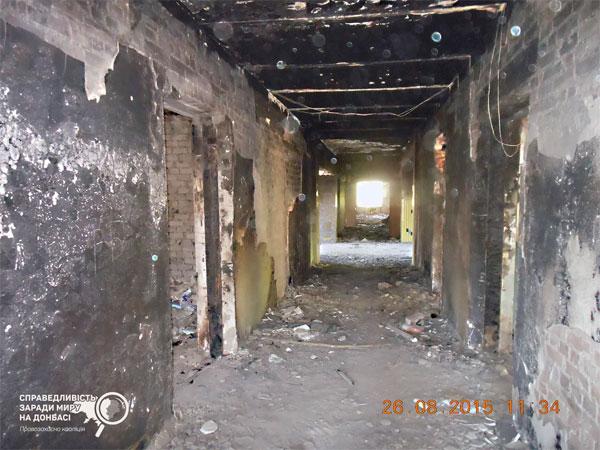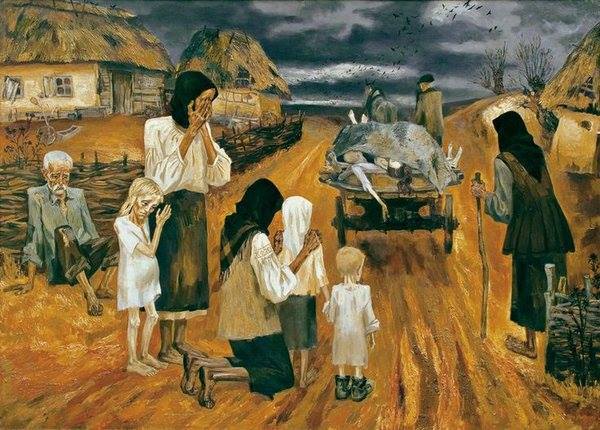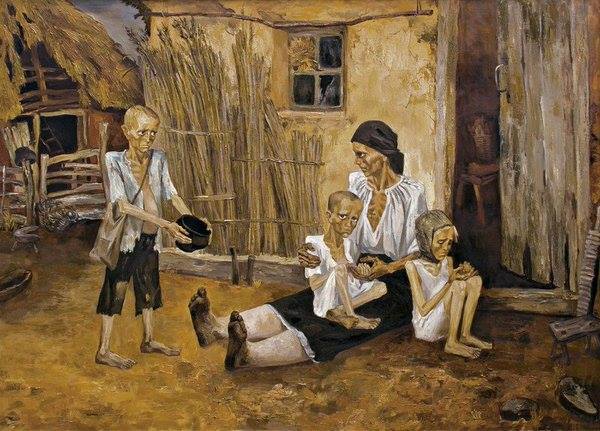The German court was able to handle the crime committed outside of Germany because of the legal principle of universal jurisdiction. This principle is a light at the end of the tunnel for countless victims of armed conflicts worldwide — especially victims of crimes against humanity committed in the Russian-occupied territories of Ukraine. After more than seven years, Ukrainians who had been tortured, electrocuted, and castrated by Russian proxy forces are slowly losing hope for justice. But that can all change — as soon as Ukraine adopts a law on universal jurisdiction.
What is universal jurisdiction?

To begin with, states have jurisdiction to investigate crimes committed on their territory, by or against its citizens abroad, or against the interests of a state. But extraterritorial, or universal jurisdiction, has no connection to a state’s territory, citizenship of a victim or a perpetrator, or national interest.
Why? The rationale behind this extraordinary principle is the nature of the said crime. Impunity in this regard appears a threat to international legal order, tramping upon its universal values.
Interestingly, there is an erga omnes duty of states not only to refrain from committing international crimes but also to react to such. When an individual who committed a crime of torture is physically present in a state not relating to the offence, that host state is obliged to bring him or her to justice. This duty stems from the UN Convention against Torture and Other Cruel, Inhuman or Degrading Treatment or Punishment of 1984.
In practice, prior to exercise of universal jurisdiction, a state must file a respective request to a state either where the crime was committed or the nationality of which the defendant has. That is to make sure that a country with a legal link to a perpetrator is not able or not willing to bring him or her to justice since extraterritorial jurisdiction is of a subsidiary nature.
Courts in Germany, France, Spain, and Belgium have demonstrated success in applying this mechanism.
What are some of these cases? With the help of the universal jurisdiction tool, the German court in 2015 convicted Ignace Murwanashyaka, leader of Democratic Forces of Rwanda’s Liberation, to 13 years’ imprisonment for genocide. And in 2017, Berlin initiated an investigation against Syrian senior officials from the Bureau of National Security, different departments of intelligence agencies and military police for war crimes and crimes against humanity; one was convicted in 2021. In 2016, a court in France sentenced two Rwandan city mayors to life imprisonment for genocide and crimes against humanity.
And in Spain, the famous case of Augusto Pinochet, the military dictator who ruled Chile from 1973 to 1990, marked the beginning of prosecution under universal jurisdiction in Spain.

The essence of the case is that a Spanish court requested that the UK arrest and extradite the former dictator. London took Pinochet into custody in 1998, subject to the Spanish court order. He was accused of murder but then released under the British decision on his immunity as a head of state. After two years of arrest, Pinochet returned to Chile where he was convicted of a number of international crimes. Even though the dictator was not extradited, the case itself served as a starting point for the application of universal jurisdiction in Madrid.
Apart from Spain, Belgium has also actively used universal jurisdiction. In 2001, Palestinians filed a case to a court in Belgium against Ariel Sharon, Prime Minister of Israel from March 2001 until April 2006, and Amos Yaron, Israelian Director-General of the Ministry of Defense from 1999 until 2005, for mass killings of refugees in camps Sabra and Shatila in West Beirut in 1982. The case against Sharon was not opened to his immunity. But not against Yaron. For that, Israel recalled its ambassador from Belgium.
An interesting case in the Belgium court made Brussels put limits on their universal jurisdiction. Several Iraqis brought a case against the 43rd president of the United States George Bush, his Vice President Dick Cheney, and then-Secretary of State Colin Powell for crimes against humanity during the war in the Persian Gulf. After Washington’s threats to deprive Brussels of its status as the NATO capital, Belgium undertook not to open cases against foreign state officials.
And what about Ukraine?

Since 2014, with the outbreak of Russian aggression against Ukraine in Crimea and Donbas, thousands of people have been killed, wounded and displaced.
International crimes committed by Russian proxy forces take place in the occupied territories of Ukraine, with kidnapping, torture and extrajudicial executions being the most common war crimes. Oleksandra Matviychuk, a Ukrainian human rights champion and Head of the Board at the Centre for Civil Liberties, personally spoke with more than a hundred prisoners of war and civilian detainees who were taken hostage.
“They told how they were beaten, raped, some had their limbs cut off, and one woman had her eye gouged out with a spoon. The war continues, and there are more and more of these stories,” says Matviychuk.
Ukrainian human rights monitors have collected thousands of stories of victims of Putin’s crimes. Defenceless people (most of them civilians) were beaten up, electrocuted, placed in wooden boxes, and had their body parts cut off.
The coalition of civil organizations and initiatives “Justice for Peace in Donbas” collected anonymous testimonies of victims of torture and ill-treatment by pro-Russian militants in occupied Donbas. They are embodied in the report “Surviving Hell.” Here are some of them:
“I asked them not to hit me and told them I was pregnant. They said it was good that an ‘ukrop’ [derogatory term for Ukrainian] child would die. They hit us with everything, including stocks, feet, and bullet vests they found with us. They hit all parts of the body. They put cigarettes out on me. He tied my eyes with duct tape since I was looking and screaming when they hit the others. I was three months pregnant and started bleeding after the beatings. I lost consciousness […]”
“They were hitting [me] for 20 minutes and put a bag over my head. The men said that this ‘Botanik’ took a plate from the bullet vest and wanted to cut my head off. I do not remember this. I woke up already in the bunker. It lasted for about an hour. They put the gun into my mouth and hit me with a stock. ‘Botanik’ was screaming that he would take my scalp off, but they did not let him. I think he was ‘nuts’ as they tried to pull him away.”
“They choked my neck with their hands. They shot my entire body from a pneumatic weapon… They were using a knitting needle to pierce a calf muscle. They squeezed all fingers on the right hand with pliers. They used the electric shocker to different body parts. They cut the right hand with a knife.”.”
“Among these three held captive by the women’s battalion, two were castrated, according to them (one lives in Lviv now). The castration was demonstrative in front of other captives.”
War crimes in occupied Donbas: every second prisoner tortured, 16% witnessed executions
According to the Coalition, of those who were imprisoned by the Russian proxy forces,
- 86% of military personnel and every second civilian were tortured and ill-treated;
- 33% of military personnel and 16% of civilians witnessed deaths as a result of torture;
- 12% of all civilians who were tortured and ill-treated were women.
Both war crimes and crimes against humanity, along with the crime of aggression and genocide, fall under the category of international crimes, or crimes under international law. These crimes got their name because they constitute actions affecting the interests of the international community. Their legal definitions and list are stipulated in the Rome Statute of the International Criminal Court (ICC). The said crimes fall under the jurisdiction of international criminal courts and tribunals, including ICC, which bring to justice individuals, not states. Each of the four international crimes has the same architecture: an underlying offence and chapeau element, or the context. And the context helps draw the line between war crimes and crimes against humanity. As for the crimes against humanity, in order to qualify as such, they must be considered to have been committed within the framework of a widespread or systematic attack directed against any civilian population (as a contextual element), often as a deliberate policy of the state, no matter when — whether in peace- or wartime. As article 2 Rome Statute envisages, crimes against humanity include inter alia murder, enslavement, torture, persecution, deportation, rape, enforced disappearance. Regarding war crimes, they refer to serious criminal offences committed exclusively in the armed conflict (as necessary context) within one state or among a few states in grave breach of the Geneva Conventions of 12 August 1949. Torture, taking of hostages, attacking of civilian objects, sexual and physical violence are some of the examples of war crimes. While combatants, members of hostilities are perpetrators of war crimes, crimes against humanity are committed by state officials. To respond to Russia’s infringing upon human rights, Kyiv has initiated respective criminal cases in domestic courts and applied to international courts. But these approaches have their limitations. Ukrainian human rights defenders say there is a magic bullet. It is to amend Ukrainian criminal legislation to give investigators in the state and beyond legal tools to bring perpetrators to justice for systemic war crimes and crimes against humanity in occupied Crimea and Donbas. These legal tools are enshrined in Ukraine’s bill 2689 passed by Verkhovna Rada (the Parliament) on 20 May 2021. The act (in common terms, law on war criminals) introduces amendments to the Criminal Code of Ukraine in compliance with the rules of international criminal and humanitarian law. Ukraine moves closer to restoring justice for victims of Russia’s war crimes The milestone of the bill is that it provides for universal jurisdiction with regard to the crimes of aggression, genocide, crimes against humanity, and war crimes. This legal decision was greeted in international expert circles. “The new law will fill a considerable gap in Ukrainian legislation. Now the Ukrainian government will have certain legal instruments necessary for effective criminal prosecution for war crimes committed in the east of Ukraine,” said Elizabeth Evenson, Associate Director in the International Justice Program at Human Rights Watch. Now, the bill awaits the President’s signature and publication. However, Ukraine’s Head of State delays the signing of the vital bill. Under the Constitution of Ukraine, the President should sign the law within 15 days following its adoption. The question is: why has Zelenskyy not done so for more than three months? According to Yevhen Zakharov, Head of the Board of Ukrainian Helsinki Human Rights Union, the reason why Zelenskyy’s stalls the signing is fear that foreign courts may as well bring to justice Ukrainian citizens who participated in the conflict and committed grave crimes. “In my opinion, the law is not submitted for signature for the same reasons as the Rome Statute is not ratified. There is fear that crimes have been committed from Ukraine’s side, and if the law becomes operative and respective investigations start, it will be a blow to the president’s image,” the expert said. But not only the president’s brand may suffer. There is a concern within the military circles that the law may be directed against defenders of Ukraine, especially volunteer fighters who went to war in 2014-2015 having an unregulated status, claims Volodymyr Horbach, a political analyst at the Institute for Euro-Atlantic Cooperation. He also adds that Russian and pro-Russian forces may use the bill to accuse and demonize the Ukrainian army. Oleksandra Matviychuk, Head of the Board at the Center for Civil Liberties explained why these worries make no sense: “Speaking of political persecution, provisions in force allow jailing anybody. The fact that a murder case may be falsified does not mean that accountability for murder should be deleted from the criminal code.” Ihor Kozlovskyy, a former hostage of the militants from self-proclaimed Russia-controlled Donetsk People’s Republic and now a senior fellow at the Philosophy Institute of Skovoroda of the National Academy of Sciences of Ukraine believes the law can protect the Kremlin’s prisoners on the occupied territories in Ukraine: “The law must be signed immediately because it can save the lives of hostages currently held by hybrid groups in Donbas and subjected to torture. Those who commit crimes against humanity must know that they will be prosecuted in any country of the world and that these crimes have no statute of limitations. The perpetrators must know that they can’t run away. And this can become a deterrent, this may save the lives of some of the hostages. Each such crime, no matter who committed it, must be duly investigated and entail sentences. And it is vital for Ukraine’s image that this law enters into force.”
What can be done?

Read also:







